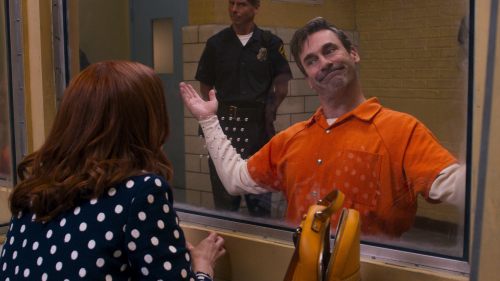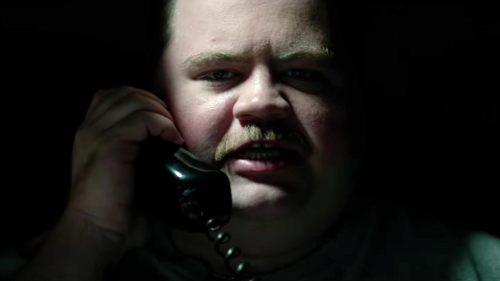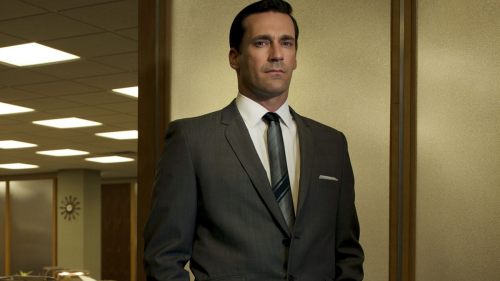MARJORIE PRIME Review: Who Wouldn’t Want A Jon Hamm Hologram?
This review originally ran January 25th.
Michael Almereyda (2000’s Hamlet, 2014’s Cymbeline) has proven himself deft at adapting theatre for the big screen, and Marjorie Prime – from the play by Jordan Harrison – is very much an effective marriage of theatrical and cinematic sensibilities. It takes place, largely, in one living room, with one family, but the scope of its story is vast.
Marjorie (Lois Smith) lost her husband some time ago, and she’s beginning to lose her memories, as well. To help her fight dementia and cope with the loss she’s suffered, Marjorie’s daughter Tess (Geena Davis) and son-in-law Jon (Tim Robbins) have provided for her a “Prime” – a computerized hologram of Marjorie’s late husband Walter (Jon Hamm). The Prime asks questions of Marjorie and her family in order to become a better and more human companion, and together Marjorie and Walter Prime piece together Marjorie’s history with Walter, a history that is slowly falling away from her as her memory betrays her.
Marjorie Prime offers a simple and contemplative view of the future, a world in which we have some measure of control over our loss. Are Marjorie’s interactions with Walter Prime meaningful, or the hollow interaction of human with computer? And if our memories shape us into the people we are, who’s to say that Walter Prime, who grows easier and more natural the more he hears of his living prototype, isn’t capable of becoming as human as Marjorie? And if Marjorie is losing her memories, does that mean she’s becoming less of herself? There were a few gentle sci-fi films about memory at this year’s Sundance, but Marjorie Prime is the most effective, not least because it’s as much a small story about family and loss as it a grand discourse on human recollection.
The performances are unanimously perfect. Smith is such a remarkable actress, both strong and soft, those eyes imparting everything you need to know about her character and what she’s feeling or remembering. Hamm’s such a smart choice as Marjorie’s Prime, his strong composure giving Walter Prime the stillness needed to read as not quite human without resorting to an exaggerated robotic drone. And, because he’s Jon Hamm, we have no problem understanding why Marjorie is unable to give him up.
Davis and Smith feel so very much like mother and daughter, a strained relationship that nevertheless indicates a deep history and love for one another. Tess is so sad, and so angry, doing her best to control a family that feels at loose ends. She’s always on her feet, moving around, tidying up, a simmering fount of emotion under a quiet surface. And Robbins is quite wonderful as Jon, who loves Tess so profoundly that he takes on her grief, her memories and her family. His interactions with Marjorie in particular are warm and appealing, as she reminds him for the dozenth time that she didn’t like him when Tess first met him, but after he got rid of “the beard,” she warmed up to him. “The beard was thirty years ago,” Tess reminds Marjorie shortly.
Most of Marjorie Prime breaks that unassailable rule of “show, don’t tell.” So much of this family’s history is told to us, in quiet scenes of actors sitting on a sofa. But when the history is so rich, and the actors so good, the telling enthralls us. By the time we start seeing flashbacks of this history an hour into the film, we feel like we already know it.



